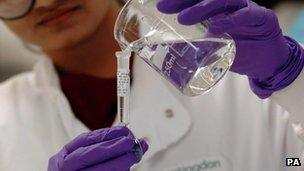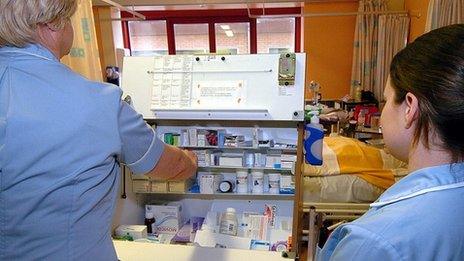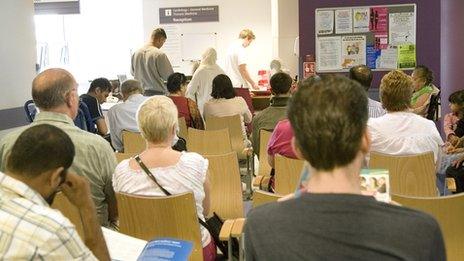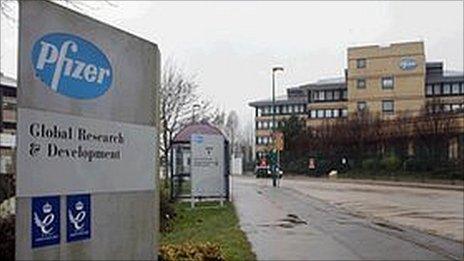Breathing life into life science
- Published

Can government action shore-up the life science business model?
It has been apparent for some time that the business model for big pharma is broken.
The so-called patent cliff - when drug companies' exclusive rights to a series of money-spinning drugs and treatments expire - is rapidly approaching, productivity from research and development continues to languish in long-term decline and customers like the NHS are becoming more savvy when it comes to demanding value for money.
So far, so familiar. But when Pfizer pulled the plug on its research facilities at Sandwich in Kent with the loss of more than 2,000 jobs earlier this year, the full implications of this looming shake-up in the pharmaceutical sector were laid bare.
According to the Regius Professor of Medicine at Oxford University and former President of the Academy of medical Sciences, Sir John Bell, the decision was a wake-up call for action.
"Pfizer's departure from Sandwich caught people unaware. It sent shockwaves up and down Whitehall because people recognised how important this sector is to the UK economy."
The speech by the prime minister, and the brace of reports the government is publishing outlining its long-term strategy and a review of innovation in the NHS, represent its response to that shockwave.
"We get that the game has changed," David Cameron will say. "We're going to be more flexible, more competitive, more hungry for business than ever before."
Sir Paul Nurse says the "pipelines are drying up" in clinical research in the UK
"The two reports we're publishing today are testament to our ambition: not just to hang on in there with a significant foothold in the global market, but to take an even bigger share of that market in the years to come."
The package includes a £180 million catalyst fund to support biomedical start-ups bridge the gap between exciting new drug discoveries and the final delivery of treatments to patients - the so called "valley of death" that sees so many potentially promising companies go to the wall.
The government is also launching a consultation on how to open up the NHS to life science companies - allowing them to exploit the huge wealth of data the health service holds, accelerate clinical trials and offer patients faster access to novel drugs and treatments.
A measure that was warmly welcomed by the President of the Royal Society, Sir Paul Nurse.
"What I think is most interesting about this is the potential for a cultural change at the National Health Service. To consider it not just as an organisation delivering care, but as a fantastic research resource as well. That could make a very significant impact".
Universities and Science Minister David Willetts says new life science strategy will forge a clear route from research to application
Speaking on the programme this morning the Science Minister David Willetts acknowledged more needs to be done to ensure the pharmaceutical industry sees the UK as the place to invest in a life sciences sector fit for the 21st century.
"Bringing our science base and the NHS together so that the UK is the best place in the world for companies to invest in the discovery, development and commercialisation of medical innovations".
- Published5 December 2011
- Published5 December 2011

- Published4 December 2011

- Published4 November 2011
